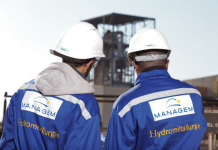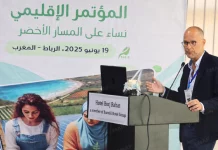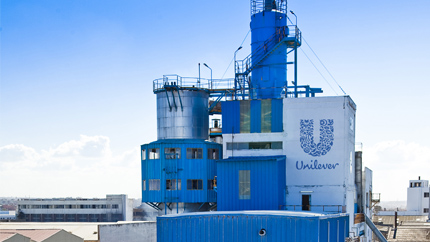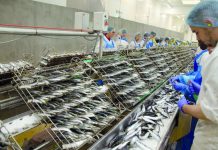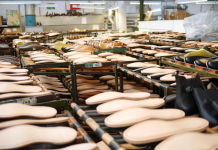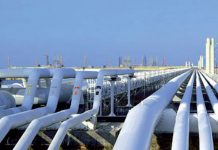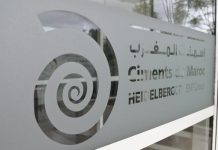Thousands of times a day, someone, somewhere in Morocco, uses a Unilever product. ” This finding is sure and certain, given the strategic positioning of Unilever Maghreb and its striking force.Its factory, located in Ain Sebaa, is one of the largest in Morocco and in the Maghreb.A plant that does not date yesterday.
It was opened in 1962 to produce, initially, “OMO” and “Gibbs”, but Unilever products have been imported to Morocco since the 1920s.
Currently, the plant produces the OMO detergent OMO Matic, Surfing, Zed and the Knorr broths and Alsa products.
In total, Ain Sebaa plant produces up to 300 tons of detergent and up to 26 tonnes of food (Knorr / Alsa) per day.
It employs 749 people, including 331 permanent and 418 temporary.
Just for the training and development of its employees in North Africa, Unilever has invested 136,000 euros in 2013 and plans to invest additional 200,000 euros this year.
Moreover, Unilever Morocco is part of the Business Unit Unilever Maghreb made up of Algeria, Tunisia, Libya and Mauritania.
With 3 production sites, including the Moroccan plant and a portfolio of 20 brands spread over 5 categories, Unilever Maghreb is one of the largest companies of the region in consumer products.
Since 2011, Unilever Morocco has invested 10,233,000 euros in its plant in Ain Sebaa.
Goal,develpo projects to reduce the environmental impact of the plant’s production system.
“We are developing new ways to drive our business to improve our social impact, whille reducing our environmental impact.
That’s why we created the “Unilever Sustainable Living Plan” Our plan for a sustainable lifestyle, “said Jihan Boukaidi, Sustainability & Partnerships Manager for North Africa, Middle East, Turkey and Russia at Unilever Maghreb.
“To reduce our environmental footprint in the factory, we focus our actions on three pillars, namely water, waste and CO2 emissions,” she adds.
Zero Waste
Set up by a multifunctional team,primarily by Supply Chain but also Human Resources and Communication, the project has managed to achieve the ambitious goal of sending zero waste to landfill.
Obviously, with the exception of hazardous waste requiring special treatment such as batteries and toners.
Thus, “we achieved in 2012, the threshold of 90% of waste recycled or reused.
Add to that the investment in a compactor machine to reduce to 80% the volume of waste for recycling, generating a saving on transport costs and reduced CO2 emissions from trucks transporting waste ” said, not without pride, Jihan Boukaidi.
What about the remaining 10% made up of waste from the canteen (food) and contaminated materials (contaminated cardboard and plastics are difficult to recycle)? “Through the efforts of the purchasing team and factory, we have been able identify a product manufactured by a Moroccan company, consisting of anti-foaming agents, and allows to decontaminate cardboard and plastics and recycling “highlights our interlocutor.
As for the food waste, an investment of 20,000 euros was realised in a composting machine, producing compost distributed to employees for their personal use.
This is the equivalent of 9 tons per year of food waste that will be recycled, generating a reduction in CO2 emissions related to transportation.
Water & Energy, Hello eco-efficiency
Whether in the offices of the company or in the factory, the eco-efficiency is the key word at Unilever Morocco.
Several actions were taken or under implementation.
Unilevers Morocco proceeded to replace current engines by others of new generation, more energy efficient thanks to the variable speed system.
It also rearranged the spaces in offices and the factory to maximize the use of natural light.
It also opted for energy optimization in compressor systems.
The goal is to eliminate compressed air leaks through detectors,ultrasonics leaks and reduce energy losses through a variable speed motor.
The return on investment is very encouraging.
It was realized in a year and a half, with an energy saving of 1580 GJ and 36 K € / year.
Not to mention the CO2 reduction of 315 tons.
In the same framework, the company has implemented a dust detector in the chimney.
“In addition to dry and wet cyclones that filter out 100% of dust, this system allows real-time tracking of the amount of dust in the air.
In case of failure, an alarm is triggered immediately to stop the process in a 5-minute delay, “said Jihan Boukaidi.
In addition to its importance for health and the environment, the new system has achieved, according to the same source, a raw material economy in the form of dust 200 kg / hour.
redouan CHAKIR



